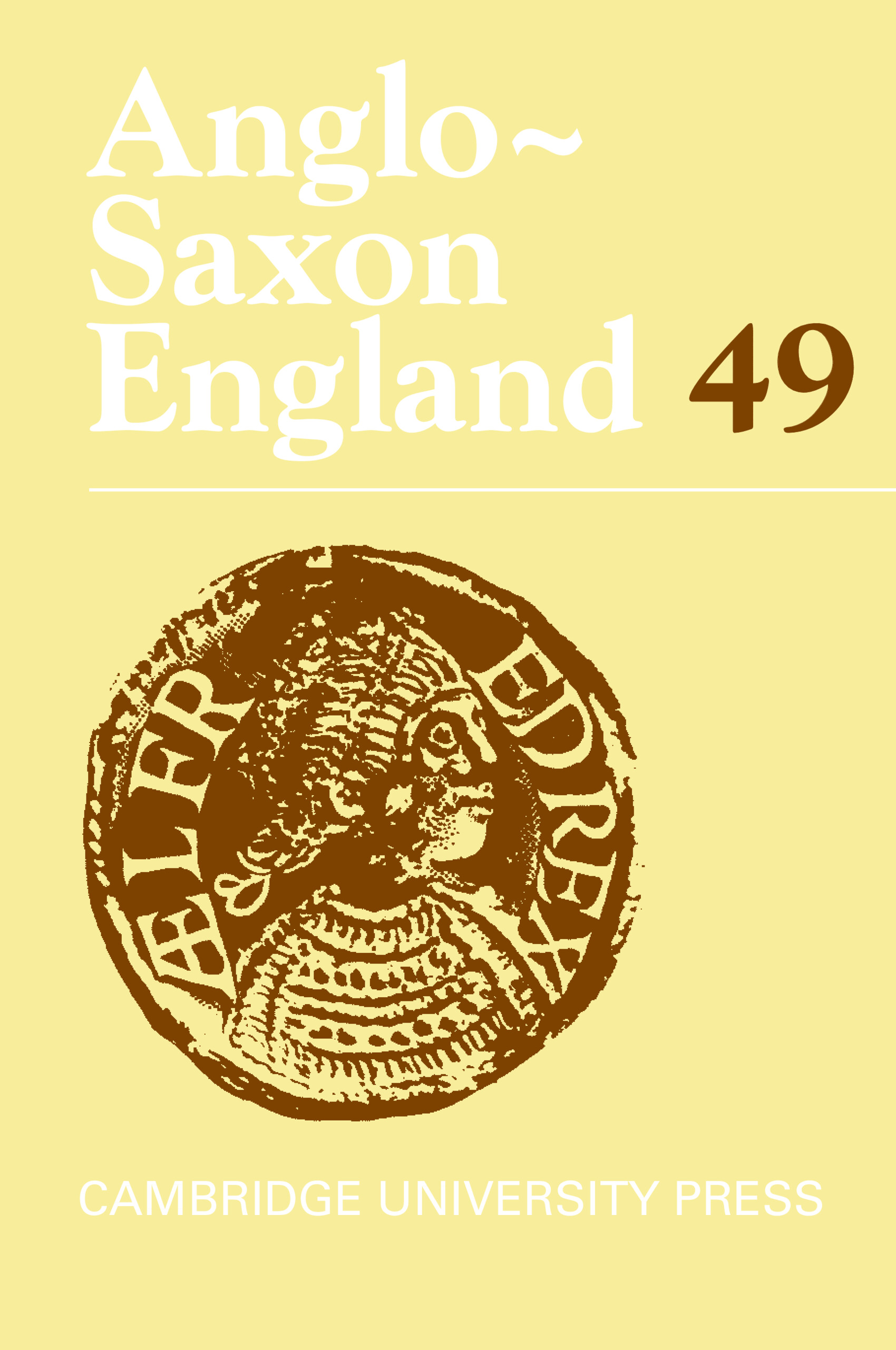Article contents
A preliminary list of manuscripts written or owned in England up to 1100
Published online by Cambridge University Press: 26 September 2008
Extract
Anglo-Saxonists have been able to use Dr N. R. Ker's admirable Catalogue of Manuscripts containing Anglo-Saxon for over twenty years now, but so far no comprehensive catalogue or list of Latin manuscripts written in, or imported into, Anglo-Saxon England has been available, although a great deal of information on these manuscripts can be found, much of it in widely scattered publications. I have been collecting such information for some time with the intention of making it more complete and, if possible, eventually publishing a bibliographical hand-list of Anglo-Saxon manuscripts. In order to create a sound basis for such a project it has seemed advisable to circulate a preliminary list, or search-list, of English manuscripts up to 1100 (including those with texts or glosses in Old English). The present list is therefore of a provisional sort. Its publication will, I hope, serve several purposes. One is to help me to learn of manuscripts and manuscript fragments of Anglo-Saxon origin or provenance which are not generally known and not yet recorded in my list. I shall therefore be most grateful for any information concerning addenda and corrigenda. (For my address, see above, p. ix.) I hope to publish a supplement in due course.
- Type
- Research Article
- Information
- Copyright
- Copyright © Cambridge University Press 1980
References
1 Oxford,1957.
2 They can conveniently be found in Ker, Catalogue.
3 Cf. below, n. 9.
4 Cf. Ker, N. R., English Manuscripts in the Century after the Norman Conquest (Oxford, 1960), p. 24Google Scholar. Earlier manuscripts which were presumably written by continental scribes in England have been included in the list.
5 A few manuscripts written in Wales or Scotland and not known to have reached England before 1100 have consequently been omitted: Cambridge, University Library, Add. 4543; Cambridge, Corpus Christi College 199; Dublin, Trinity College 50 (A. 4. 20); and Edinburgh, University Library, 56 (D. b. iii. 8).
6 Languages other than Latin or Old English are specified in the entries. All texts by Greek authors are in Latin versions; this has not been specially mentioned.
7 For more information about the dating of such manuscripts in the British Library, see now Watson, Andrew G., Catalogue of Dated and Datable Manuscripts c. 700–600 in The Department of Manuscripts, The British Library, 2 vols. (London, 1979).Google Scholar
8 For the seats of the Anglo-Saxon bishoprics, see Blair, Peter Hunter, An Introduction to Anglo-Saxon England, 2nd ed. (Cambridge, 1977), pp. 142–5 and 167–71Google Scholar, and Barlow, Frank, The English Church 1000–1066, 2nd ed. (London, 1979), pp. 208–31Google Scholar. For Anglo-Saxon abbeys in the tenth and eleventh centuries, see Knowles, David and Hadcock, R. N., Medieval Religious Houses: England and Wales, 2nd ed. (London, 1971)Google Scholar, and Knowles, David, Brooke, C. N. L. and London, Vera C. M., The Heads of Religious Houses: England and Wales 940–1216 (Cambridge, 1971Google Scholar).
9 Bishop, T. A. M., English Caroline Minuscule (Oxford, 1971)Google Scholar, and contributions to Trans. of the Cambridge Bibliographical Soc. 1–4 (1953–68); Ker, , Catalogue, and Medieval Libraries of Great Britain: a List of Surviving Books, 2nd ed. (London, 1964)Google Scholar; Lowe, E. A., Codices Latini Antiquiores I–XI and Supplement (Oxford, 1934–1971Google Scholar), and II, 2nd ed. (1972).
10 Rella, F. A., ‘Some Aspects of the Indirect Transmission of Christian Latin Sources for Anglo-Saxon Prose from the Reign of Alfred to the Norman Conquest’ (unpubl. B.Litt. thesis, Oxford Univ., 1977Google Scholar). See also the same author's ‘Continental Manuscripts Acquired for English Centers in the Tenth and Early Eleventh Centuries: a Preliminary Checklist’, Anglia 98 (1980), 107–16Google Scholar.
- 24
- Cited by


